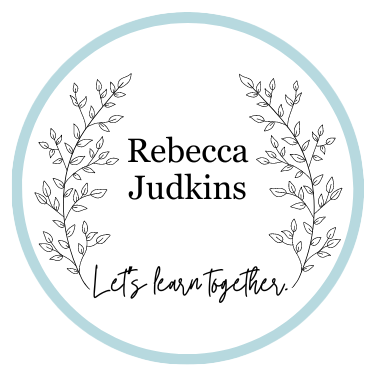I have been putting off writing this blog. I’m about to expose some of my deepest vulnerabilities; no one likes to do that. The idea of advertising to the world (or in my case, my modest readership) that behind my seemingly capable, confident exterior is an anxious and sometimes hesitant person? Well, that idea is unnerving, to say the least. It’s even borderline terrifying, but imposter syndrome is such an important topic that we’re going to push through it together.

Imposter Syndrome
You’ve undoubtedly heard the phrase “imposter syndrome.” You may have even felt it. You may be dealing with it right now. It’s hardly uncommon. But let’s establish a working definition anyway. In her article written for Harvard Business Review, Kess Eruteya referenced Pauline Rose Clance’s and Suzanne Imes’s research paper that codified the phrase “imposter syndrome.” According to that paper, there are “three critical attributes of the phenomenon: 1. Thinking that people have an exaggerated view of your abilities, 2. The fear of being exposed as a fraud, 3. The continuous tendency to downplay your achievements” (Eruteya, 2022, paras. 4-5).
Am I an Imposter?
I have dealt with imposter syndrome in my life, in two notable, relevant circumstances. First, throughout the majority of my professional career in instructional design. Outside of writing, which is a skill in which I have confidence, I suffer from those three ugly little monsters outlined above. My feelings of self-doubt crept in over the years, despite exceptional mentoring, despite fantastic project outcomes, and despite excellent feedback from peers and supervisors. What was missing and why was I feeling this way?
The Missing Link
After much thought and research, I believed that my never having been formally educated in instructional design, education, or any other related field (my BA is in women’s studies, which was a wonderful program, but not exactly applicable to my current profession) was contributing to my feelings of inadequacy. I was plagued by internal nagging questions like, “is this the best way to approach this project?” “is there a better strategy?” “are you sure that is instructionally sound?” “why are you proposing doing it that way?” I wanted to quiet the imposter monster.
After still more thought and research, I believed graduate school represented an opportunity to fill in the gaps in my knowledge base. I have a wealth of practical experience and knowledge, but I craved the foundational theory and knowledge to shore up that practical experience. So, with Bob’s blessing, I ventured forth, confident in what graduate school at Purdue represented.
Not a Magic Bullet
Guess what? I still feel kind of like an imposter. I still find myself slipping into bad mental habits, like “am I smart enough to be here?” “I have to get an A on every single assignment,” and “will this solve the problem?” After a few weeks of the imposter monster creeping back in, I realized something: Nothing external (like school, accolades, or project outcomes) will solve the problem. But I can. I am my own magic bullet.
Self-Efficacy
To quiet the imposter monster, I started considering what learning theories might actually say, since most of my concerns stem from my feelings of not knowing what I feel I need to. Conveniently, my learning theories class from last term could shed some light on that. Social cognitive theory spends a lot of time ruminating about learner’s personal variables, like cognitions (thoughts, beliefs, etc.) and how they reciprocally interact with two other variables, behavior and the environment, in Albert Bandura’s framework of triadic reciprocality (Schunk, 2020).
One of the beliefs learners have is “perceived self-efficacy (a personal variable), or beliefs about one’s capabilities to organize and implement actions necessary to learn or perform behaviors at designated levels” (Bandura, 1982b, 1986, 1997, as referenced in Schunk, 2020, p. 127). What this basically means is how learners feel about whether or not/how well they can learn or perform what they learned. Huh. Sounds an awful lot like what I’m dealing with right now. It’s important to note that perceived self-efficacy does not represent the learner’s actual ability, but rather their perceived ability.
Raising My Self-Efficacy
I cannot tell you what to do, because I’m not you and I don’t know what will work for you. But I can share what has been working for me to quiet these little imposter monsters. Social cognitive theory also tells us something very interesting about self-efficacy. Schunk says, “the perception of progress or mastery can build efficacy” (Schunk & DiBenedetto, 2016, as referenced in Schunk, 2020, p. 143). To increase my feelings of self-efficacy, the perception of progress of mastery is important. In my case, grades and positive feedback, as well as continued understanding of my course content and how it applies to my real life, are ways that I am beating back the imposter monsters.
I also share this in the hopes that my own journey may help you. Schunk’s text says, “one way to raise self-efficacy is to use coping models, who initially demonstrate fears and skill deficiencies but gradually improve their performance and self-efficacy. Coping models illustrate how determined effort and positive self-thoughts overcome difficulties” (Schunk, 2020, 154). By sharing my imposter syndrome struggles and how I fight those little monsters, perhaps you might be encouraged too. And we’ll all raise our self-efficacy and learn more…together.
If you are interested, Kess Eruteya’s article has some more ideas. Click here if you want to check it out.
Energepic.com. (2017, February 3). Woman sitting in front of Macbook. [Photograph]. Pexels. Retrieved April 15, 2024 from https://www.pexels.com/photo/woman-sitting-in-front-of-macbook-313690/
Eruteya, K. (2022, January 3). You’re not an imposter. You’re actually pretty amazing. Harvard Business Review. Retrieved April 10, 2024 from https://hbr.org/2022/01/youre-not-an-imposter-youre-actually-pretty-amazing
Schunk, D. H. (2020). Learning theories: An educational perspective (8th ed). Pearson.

